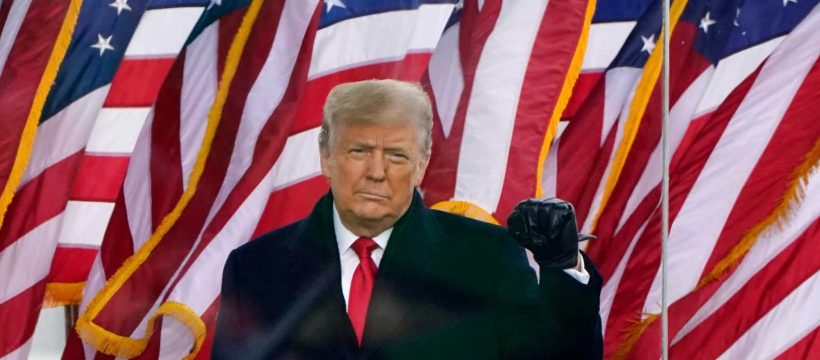More from:
Rich Lowry
Facing China means spending more on defense, Joe —not just pre-K and windmills
Democrats' disastrous 'voting rights' bill is a non-solution to a non-crisis
Progressives get vicious with Joe Manchin because he has principles
Biden's big FDR-style agenda is already sputtering to a halt
Power-hungry Dems are stirring hysteria over Texas' sane election reforms
A key storyline of President Joe Biden’s overseas trip was how different Biden was from his immediate predecessor, and indeed he was — except in one crucial area: Biden’s hawkishness on China, which figured prominently, was a reflection of how fundamentally former President Donald Trump changed our posture toward Beijing.
It is the ultimate victory for a politician if he doesn’t just reorient his own party, but the other party — Ronald Reagan and Margaret Thatcher both did this, producing more moderate Democratic and Labour leaders in Bill Clinton and Tony Blair, respectively.
On China, Trump’s wrenching shift in the US approach is now getting the tribute of broad acceptance by a successor who has nothing good to say about him and wants, in fact, to differentiate himself from him as much as possible.
It is impossible to imagine former President Barack Obama during his time in office, just five years ago, pressuring reluctant European allies to take a tougher line against Beijing, as Biden did over the past week.
For 20 years, Washington had operated on the bipartisan assumption that welcoming the Communist regime into the international system and establishing closer commercial ties would pay off in a liberalizing China.
By the end of the Obama years, it was increasingly clear that this strategy had come a cropper. Team Obama talked of a “pivot to Asia,” or shifting attention and resources from the Middle East to Asia, but this was more sloganeering than substance.
Obama remained accommodating, even as the Chinese invested massively in their military, encroached further on the South China Sea, continued to engage in cyber espionage and hacking, launched the Belt and Road Initiative, started to build their own international financial architecture via the Asian Infrastructure Investment Bank and began their campaign of cultural genocide against the Uighurs.
The situation resembled the end of the Jimmy Carter years, when any hope of the Soviets moderating their behavior was blown away by the invasion of Afghanistan.
The old consensus on China had become unsustainable, but it took Trump, contemptuous of elite opinion and willing to blow things up (or at least talk about it), to demolish it.
For years, the security and trade relationships with China had been considered separate realms, or worse, we’d been afraid of pushing too hard on security matters for fear of upsetting commercial relationships.
Trump linked trade and security and sent the message to the world that the comingling of US and Chinese economies wasn’t inevitable and indeed, could be reversed. True, he over-personalized his relationship with President Xi Jinping and oversold what might come of the trade war with the China, but the reorientation was unmistakable.
Beneath the drumbeat of controversy from the top, though, Trump officials undertook a thoughtful, deliberate effort to set out and implement a new strategy.
The administration produced several important documents across government — from the Department of Defense, to the National Security Council, to the State Department — that crystallized the new thinking.
The administration worked to buttress alliances in Asia and successfully lobbied European countries to exclude Huawei from their networks, part of a broad pushback on all fronts, including defense, diplomacy, cyber, telecom, trade and human rights.
By any fair measure, this was a serious campaign and China’s behavior in recent years has only underlined its necessity.
It would be foolish to trash all of this only because it had the name “Trump” attached to it. To his credit, Biden hasn’t. It remains to be seen how tough-minded he really will be on Beijing, but directionally, his push to get allies on the record condemning Chinese malfeasance is welcome.
Biden’s bonhomie with French President Emmanuel Macron and German Chancellor Angela Merkel was fine as far as it went and a marked difference with Trump. But more important, his emphasis on what might be the defining confrontation of the first half of the 21st century made an implicit nod to the enduring strategic transformation brought about by his predecessor.
Twitter: @RichLowry
Share this article:
Source: Read Full Article
